“Ill fares the land, to hastening ills a prey,
Where wealth accumulates, and men decay.”
So wrote the Irish author and playwright Oliver Goldsmith in the 18th century. Goldsmith is most famous for his novel, ‘The Vicar of Wakefield’, and for the play, ‘She Stoops to Conquer’, which is also about wealth and inequality, although he wrote many other things, too. In the play, the leading female character, Kate, learns that the man her parents want her to marry (and whom she quite fancies herself) is shy in the presence of posh ladies like her and is therefore more inclined to seduce (or attempt to seduce) ‘lower-class’ girls. She therefore pretends to be a barmaid to win his affection. It all gets very muddled with pranks galore but really centres on the snobbery of wealth and the dishonesty of those possessing it and determined to hang onto it at all costs. It remains a very funny play, even today; I saw it once, appropriately, at England’s oldest theatre, the lovely 18th century Theatre Royal in Margate. Clearly, Goldsmith wasn’t thinking of Cyprus back then, but he might as well have been.
Cyprus grants citizenship in return for investment and, of course, many of those seeking the privilege of citizenship gained the money they choose to invest from somewhat doubtful activities. Thus, Cyprus is gaining quite a few new citizens that most people wouldn’t really want as neighbours if they knew what they’d done. On Cyprus, for some, it seems wealth is what matters most, something that became clear in the so-called “Cyprus Papers”. As the non-profit Transparency International noted in August, “Dozens of convicted criminals, fugitives and public officials have apparently bought European Union (EU) passports from Cyprus in recent years.” It’s not a cheering thought, unless, of course, you’re a dishonest public figure or a mobster looking for somewhere to stash your ill-gotten loot. Indeed, citizenship of the European Union is seen by crooks as just another luxury good that can be easily purchased with dirty money. Transparency International says there is no shortage of buyers, which is “why investment migration is a growing, multi-billion-euro industry.” Some governments, it seems, can’t tell wealth from worth. They are most certainly not the same thing, as Oliver Goldsmith was only too well aware some 250 years ago.
The extent of the corruption was largely exposed by Al Jazeera in the ‘Cyprus Papers’, and it has put pressure on the European Commission to take action. Unfortunately, the Commission also displays a disturbing history of being swayed by wealth and of being slow to act, although not in itself corrupt (or not institutionally so). The Commission did a lot of spring cleaning during the scandals over certain members of Jacques Santer’s commission in the late 1990s. Santer got a raw deal, in my view; he was a trusting man and believed his team was made up of honest and truthful commissioners, when one or two of them were slightly suspicious. It’s true that his taste for the good life led to him being known as ‘Champagne Jacques’, but enjoying a glass of bubbly hardly sets him apart. I still like the man and we always stop for a chat when we chance to meet. The current Commission’s problem is that it’s just a bit too wary of upsetting rich people. Cyprus has certainly done well from its sales of passports; its unregulated ‘golden passports’ scheme is said to have earned the country billions since 2013. According to the Turkish journal, the Daily Sabah, the scheme brings in some €914-million annually. In some cases, this involves money laundering. Transparency International says that the Commission must do more to prevent the thefts of public funds, either from Europe or from far-flung countries, and to stop kleptocrats from seeing the EU as their private piggy-bank. The ‘piggy’ part is appropriate: many of the passport purchasers are people who’ve had their snouts firmly in the trough.

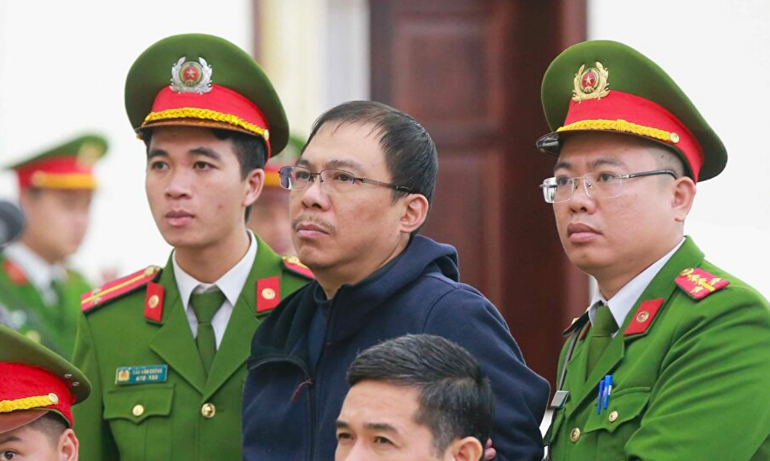
Nguyen Bac Son, Vietnam’s former Minister of Information © Tuoitrethudo.com Former AVG President Pham Nhat Vu © Sputniknew
Take the case of Pham Nhat Vu, who gave evidence in the trial of Nguyen Bac Son, Vietnam’s former Minister of Information and also the self-confessed source of a $3-million (€2.52-million) bribe involving the state-owned mobile phone and pay TV conglomerate, Audio Visual Global JSC (AVG). Son only escaped the death penalty because his family somehow managed to pay back the sum, but even so he received a life term in prison. Vu, however, was said to have cooperated with the authorities and confirmed that he had provided the massive bung (one wonders from where?). It’s said that he looked unimpressive in court, but he has a lot of wealth behind him: his brother Pham Nhat Vuong, for instance, is Vietnam’s richest man. What would Hồ Chí Minh have had to say about that? There were also appeals for clemency by the Buddhist Sangha of Vietnam (does that mean Vu’s karma is squeaky-clean?), the Vietnamese Red Cross and the Russian ambassador.
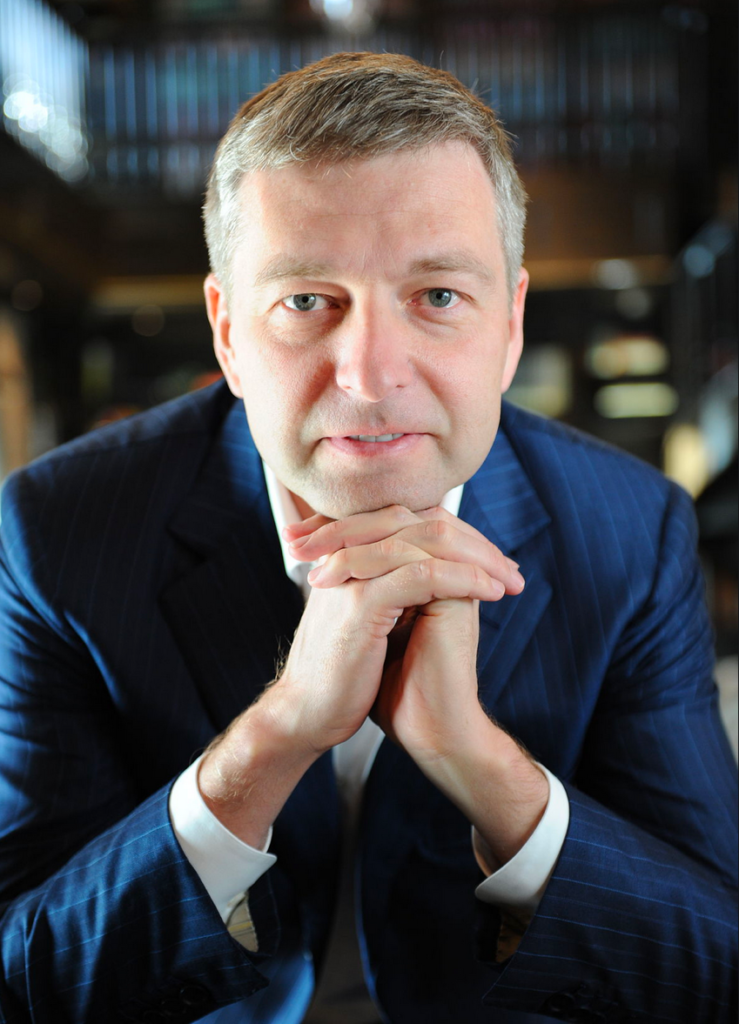
Dmitry Rybolovlev © Wikipedia
An odd assortment of backers but effective; he got away with a 3-year jail term. Vu came to the attention of Al Jazeera’s investigative journalists, though, not because of the trial or his odd array of supporters but because he had been granted a passport by the Republic of Cyprus just before the trial. He is not alone. Thousands of people with dodgy sums of money tucked away that they gained through heaven-knows-what sorts of activities have taken part in what’s called the ‘Cyprus Investment Programme’, earning (if that’s the right word) the island around $8-billion (€6.72-billion). It’s a major source of revenue for Cyprus.
A HISTORY OF DODGY DEPOSITS
In the aftermath of the 2007-8 financial crisis, those in the know could see a crisis looming for Cyprus. Despite its small size and modest population, it had been operating a massive offshore banking industry. The banks had amassed some €22-billion of Greek private-sector debt, despite the island’s GDP being just €19.5-billion. It’s a significant discrepancy, although the renowned economist Joseph Stiglitz argues that GDP is a poor way to measure the wealth of a country, and he’s right. The banks held deposits of around $120-billion (€100.47-billion), including $60-billion (€50.23-billion) from Russian corporations. One Russian oligarch, Dmitry Rybolovlev even owned a 10% holding in the Bank of Cyprus.
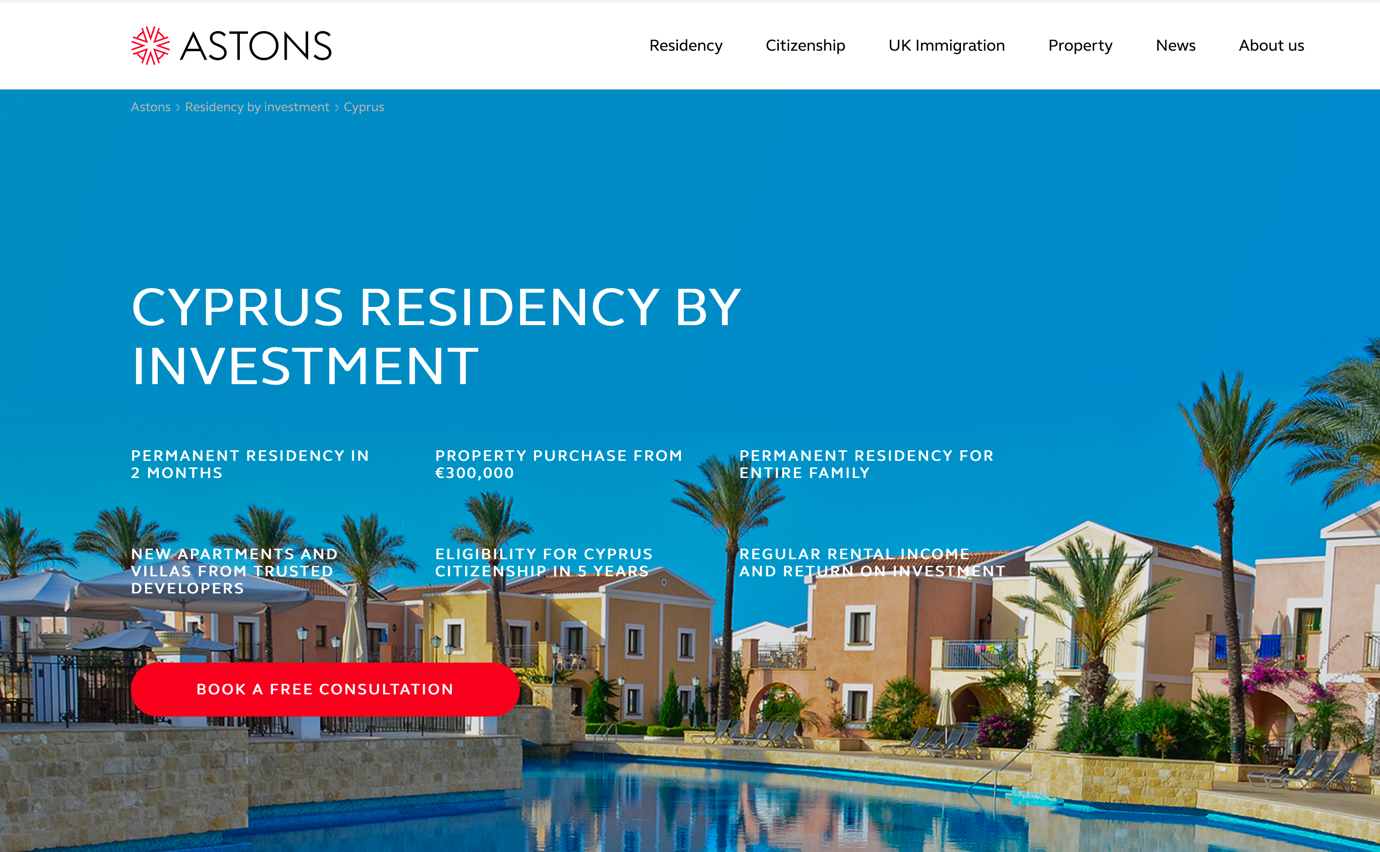
Internet promotion for the “Cyprus Investment Programme”
The EU and other global players didn’t exactly rush to help and some of the ideas put forward (and put in place) shocked EU-watchers, although not as much as they shocked Cypriot citizens whose personal savings they believed to be safe in a local bank. When the Dutch politician and economist Jeroen Dijsselbloem, then president of the EU’s Eurogroup – the informal group of finance ministers from countries using the euro – announced plans to basically syphon off a proportion of the deposits held there, it caused outrage. I was one of the journalists covering the meeting of the European Parliament’s Economic and Monetary Affairs committee at which Dijsselbloem announced the plan to cover the crisis by pinching people’s savings.
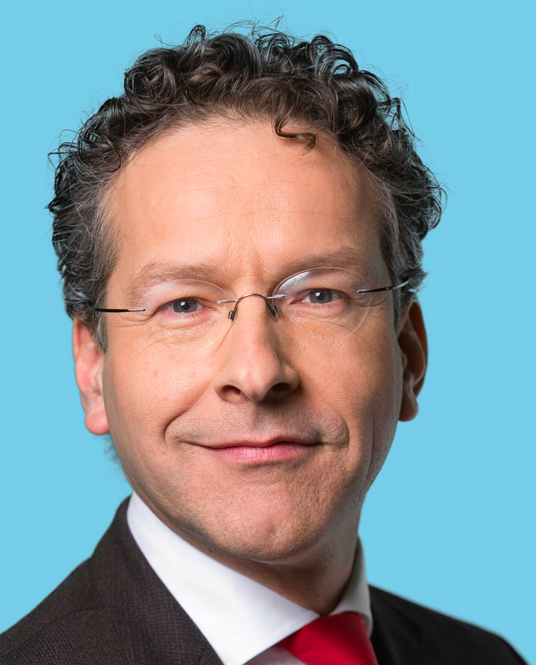
Jeroen René Victor Anton Dijsselbloem ©
There was outrage. What about all the deposit guarantee scheme? I asked Dijsselbloem but he seemed not to realise that his plan went against everything the EU was supposed to stand for. Either that or he simply couldn’t see an alternative. It was the “like it or lump it” option, and many of us there wished Jean-Claude Juncker had still been head of the Eurogroup, instead of Dijsselbloem.
Under much media criticism, the EU eventually opted to stick to its promised Deposit Guarantee Scheme, under which deposits of up to €100,000 were protected, even if a bank went bust. Of course, some of the deposits in Cyprus banks were of more than that sum, and they suffered a haircut. In the 2013 bailout, funded by the European Commission, the European Central Bank (ECB), the rest of the Eurogroup and even the International Monetary Fund, Cyprus agreed to the closure of its second biggest bank, the Laiki Bank, and imposed a levy on investments not covered by the guarantee, as well as some 48% of uninsured deposits in excess of €100,000 in the island’s largest bank, the Bank of Cyprus.
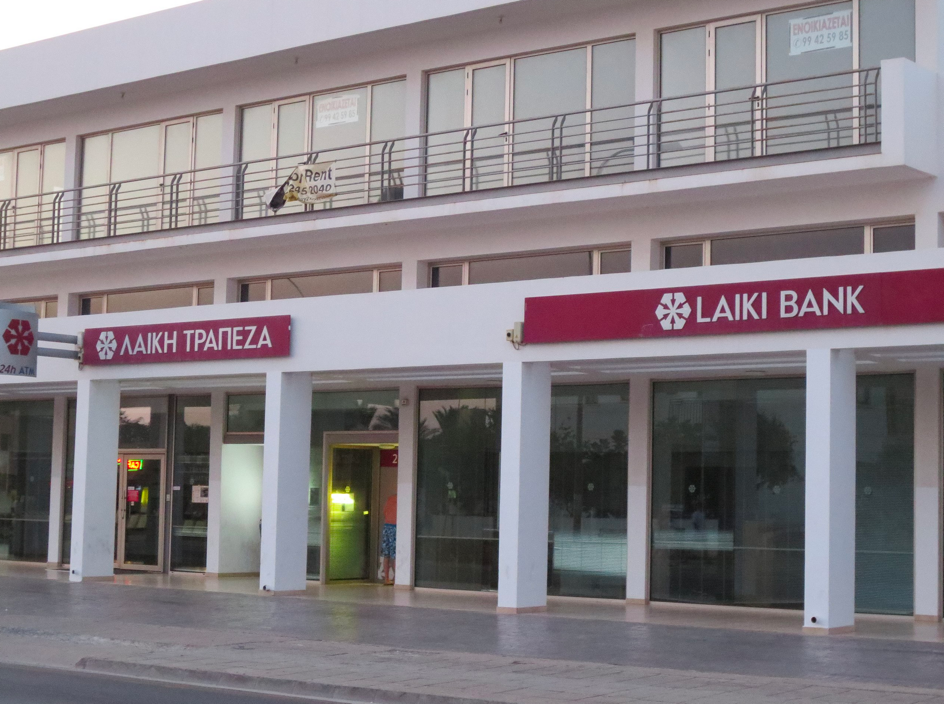
Laiki Bank in Agya Napa, Cyprus © Wikipedia
A lot of the depositors came from Russia, who liked the relatively high interest rates, low corporate taxes and ease of access to banks in other parts of the EU. The whole, slightly-mishandled affair showed Cyprus to have been a tax haven, often for dirty money. Nothing much seems to have changed.
The Al Jazeera investigation researched some 2,500 people named in the Cyprus Papers, who appear in more than 1,400 applications for citizenship. The country from which the largest number come is Russia, with around 1,000, followed by China with 500, just over 100 from Ukraine and a further 350 from the Middle East. All were, of course, extremely rich and much of their wealth seems to have been gained by questionable means. “Don’t look too closely”, seems to have been the guiding principle. Most would not be eligible if they applied today: Cyprus introduced new rules for citizenship in 2019, tightening up the criteria listed under the Cyprus Investment Programme (CIP).
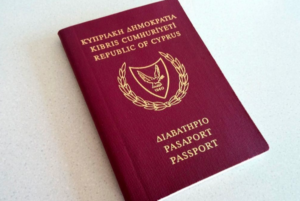
Indeed, some previously-granted passports were revoked, although various justice NGOs are still highly suspicious of what’s been going on. Transparency International, for instance, has called upon the European Commission to take decisive action against countries operating what are called ‘golden visa’ schemes, which are seen as being vulnerable to corruption and money laundering.

Didier Reynders, European Commissioner for Justice © consilium.europa
Since then, Commissioner for Justice Didier Reynders has told journalists that he is considering legal action against Cyprus. Needless to say, we’re talking here about the officially recognised democracy in the south of the island. North Cyprus may be many things but it’s probably not the sort of place foreign crooks would want to declare as their official place of residence and citizenship. However, the European Commission has admitted that schemes that sell citizenship and residency rights to the super rich “threaten the EU’s collective security and integrity.” In a report, the Commission has pointed out that such citizenship schemes are “deliberately marketed and often explicitly advertised as a means of acquiring EU citizenship” with Bulgaria, Cyprus and Malta disregarding Union Law by selling passports without requiring applicants to live in their country.”
We’re looking at Cyprus today, but it would be unfair to leave out Bulgaria and Malta. It was in Malta, after all, that an investigative journalist looking into corruption was killed by a car bomb.
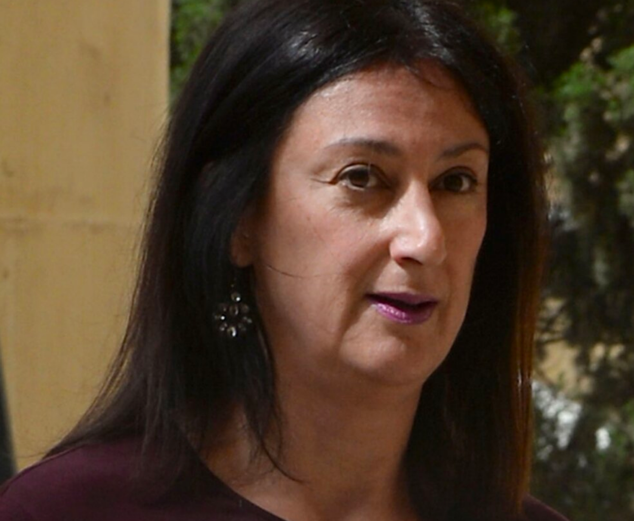
Journalist Daphne Caruana Galizia © womeninjournalism.org
Daphne Caruana Galizia was very unpopular with rich and influential people for exposing their perfidy and lies; she was being sued when she died and the people she had exposed tried to pass the debts on to her relatives and dependents until the Council of Europe’s Human Rights Commissioner told them to stop. When the murder was raised at a session of the Council of Europe’s Parliamentary Assembly, Maltese delegates tried to get the subject dropped on the grounds that the death had not been proven to be murder. The rapporteur, Dutch MP Pieter Omtzigt successfully pointed out that there is no other way to classify killing somebody with car bomb.

Pieter Omtzigt pace.coe.int
It can hardly be classed as an ‘act of god’, ‘accidental death’ or ‘attack by armadillo’. Somebody – probably quite a large number of people – wanted her silenced for good. The trial of her suspected killers, meanwhile, continues to make slow progress through the courts and one self-confessed member of the gang responsible, Melvin Theuma, successfully appealed for a pardon on the grounds that he was giving evidence for the prosecution. He has since suffered severe knife wounds to his right side and neck which the police say were “probably self-inflicted”. Hmm… Meanwhile, a senior member of staff in the prosecutor’s office quit the job one day and turned up as defence lawyer for one of the accused the next. It’s almost as if some people among the Maltese authorities are determined to prove to the rest of Europe just how corrupt they are. In her last blog before she was murdered, Galizia wrote “There are crooks everywhere you look now. The situation is desperate.” How true. The authorities were clearly surprised and distressed by the outpourings of public anger; they seemed to have thought nobody would care. Back in the 1920s, my mother lived in Malta while her father, a British Royal Navy officer, was serving there. She was in her early teens and the only words of Maltese she learned were “Mur linfern”, which means “go to hell”. I’ve always wondered why. But clearly Cyprus isn’t alone in seemingly embracing corruption.
Bulgaria also offers ‘golden visas’ and slightly more cheaply. According to the New Balkans Law Office, “Bulgaria is one of several EU member states which offers a citizenship by investment (CBI) and a residence by investment (RBI) programmes. To qualify for citizenship on the Fast Track, you need to: Invest approximately €1,000,000 (approximately €500,000 on the Standard Track); Invest in bonds issued in euros or one of another three investment classes; Travel to Bulgaria up to three times over the (up to) 2-year application period.” Bulgaria may not have the Mediterranean appeal of Cyprus, but as the lawyers point out: “You do not need to: Make Bulgaria your residence (though you could); Learn to speak the national language; Meet other requirements which may apply in other EU CBI/RBI countries.” Furthermore, the website says, “Once a Bulgarian and therefore an EU citizen, you benefit from: Visa-free travel to an estimated 169 countries; Freedom of movement rights within the EU and its 28 members, the EEA, and Switzerland; A range of economic and social rights.” It would seem fair to ponder why a person resident in and running a business far from Europe should want or need an EU passport, don’t you agree?
GETTING IN IS EASY – IF YOU HAVE THE CASH
The CIP, introduced by Cyprus in 2016, officially lowered the threshold for the investment required to earn a passport by more than €1-million (from €2.5-million). It also required applicants to have unblemished criminal records, without explaining exactly what that meant. It apparently didn’t include those under investigation for alleged criminal activities or who were facing imminent conviction.
Under the CIP, the Cypriot government was supposed to make background checks of applicants, using the data bases of Europol and Interpol, but by and large they didn’t bother, relying on applicants to tell the truth. If that was a reliable way of ensuring honesty, there would be no need for law courts; the simple question “how do you plead?” would result in crooks invariably saying “guilty” (if they were). But, of course, they don’t. As a result, only 2% of applicants for a Golden Visa in Cyprus were rejected between 2013 and 2018. One man was accepted despite a 16-year-old conviction for extortion. He is now a high-flyer in Russia, although whether that is the reason for his acceptance or a belief that after 16 years it no longer mattered is unclear. He’s not the only one.
How does one go about acquiring residency rights or, indeed citizenship? According to the website of a Hamburg-based firm of German attorneys, Jaberi Lawyer, it’s quite easy (if not cheap). Cyprus offers two ‘golden visa’ programmes based on investment in real estate, one for permanent residency and one for citizenship. “The two Cypriot immigration investment schemes are fast and efficient at granting a residency permit and second passport. Cyprus is a full member of the European Union and English is widely spoken on the island,” says the website, presumably aimed not at German citizens but at those who are not EU citizens. “Applicants can secure permanent residency in Cyprus through investment in real estate. The programme is one of the fastest and simplest investor visa programmes in Europe. It requires investment of just €300,000 into property to gain the Cyprus residency permit.” Within two months, the residency visa is granted, covering the entire family. “It includes parents of both the main applicant and spouse plus dependent children up to the age of 25,” the site assures prospective clients. What’s more, it’s valid for life and can be passed down to dependents and spouse. Once someone has bought permanent residency rights, they can travel freely throughout the EU and it’s only necessary for the whole family to visit Cyprus once every two years. The required investment sum can be split between two properties, but both must be brand new. What’s more, the purchaser must have a fixed deposit in a Cyprus bank account showing a €30,000 minimum deposit in the applicant’s name, which will be locked for a period of 3 years. In addition, the applicant must prove he or she has a minimum annual income of €30,000 and an additional €5,000 per dependent, plus €8,000 per dependent parent or parent-in-law. After seven years of uninterrupted living on the island, the applicant gets citizenship. It’s considered a very good deal, especially by lawyers who make money out of it, but it’s probably worth remembering that Cyprus is not in the Schengen free movement area.
According to Transparency International, Al Jazeera’s Investigative reporters obtained a huge volume of documents that appear to show how “an investment of over €2 million in Cyprus secured EU citizenship for 1,400 wealthy individuals and their 1,100 family members from 2017 to 2019. Reportedly among the primary applicants were at least 30 individuals with pending criminal charges or convictions, as well as 40 politically exposed persons.” No wonder the EU is getting jittery; the union is quite capable of producing a lot of vicious, greedy criminals of its own without importing more and offering inducements to others. Transparency International cites an example of how the precautionary principle failed. “Some on the list appear to have bought their passports after the government introduced more stringent eligibility criteria in May 2019,” it points out. “For example, former Gazprom official Nikolay Gornovskiy was on Russia’s wanted list for corruption when he reportedly bought EU citizenship in 2019.” In our highly connected world, warnings can be flashed from place to place and from law enforcement agency to law enforcement agency, but it somehow seems to fail to prevent known criminals from escaping justice. The really wealthy have always believed that they’re above the law and, however criminal they may be, it seems that they’re right. A little largesse to grease the wheels is all it takes.
It would seem that laws are applied differently for those who are really, seriously crooked as well as seriously rich. It’s a fact of life that has helped to swell the coffers of Cyprus. Take the case of Ali Beglov, nick-named Alik Tartarin when he was a member of the St. Petersburg underworld, who served a 2-year jail term for extortion in 1990-1992. He spent $500,000 (€419,000) on a birthday party for his 9-year-old son which was attended by TV stars and senior local politicians in the old Tsarist capital, St. Petersburg. Despite his criminal record, he was able to obtain a Cyprus passport whilst also climbing the social ladder in Russia. From 1999 to 2016, he was general director of a subsidiary of Lukoil, which generates profits of $13.2-million (€11.05-million) every year. Months before the party, reports Al Jazeera, a new dairy company was set up by Beglov’s eldest son inside the regional headquarters of Lukoil in St. Petersburg. You may recall that the city is also where Tolstoy’s tragic heroine, Anna Korenina, committed suicide at the city’s rather splendid railway station. Across the road from it, when I was last there, there is an administrative building that still has on its roof (in Cyrillic, of course) Leningrad, the name it held before a post-Communist referendum changed it to its tsarist nomenclature, St. Petersburg. Leningrad is still the name of the oblast – the administrative region – surrounding it because the people in the wider region voted to keep it. A year after setting up in business, Beglov junior’s new company was supplying dairy products to Russia’s Constitutional Court, the State Duma (parliament), the FSB (federal security service) and the Federation Council (the upper house of the federal assembly).
This is by no means an isolated case, nor are Russians the only people to take advantage of taking another nationality: several senior members of the ousted Ukrainian president Viktor Yanukovich’s government obtained passports in Cyprus.
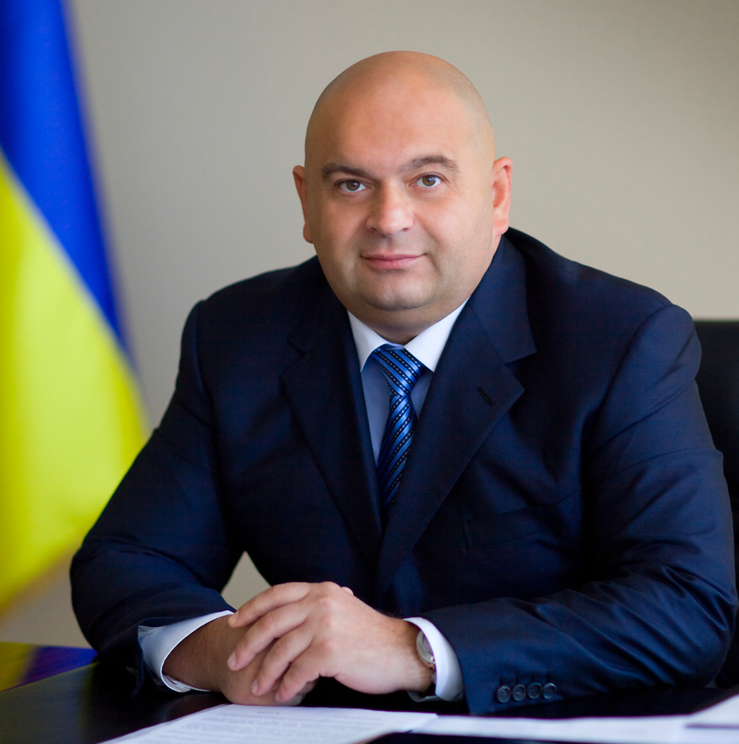
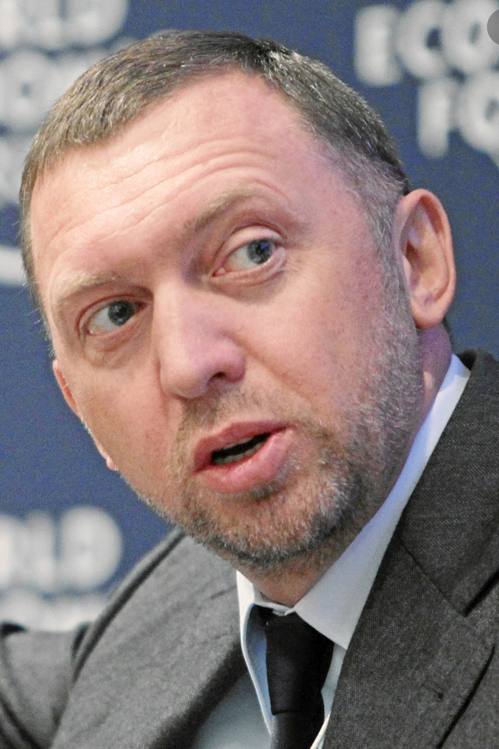
Mykola Zlochevsky © Svetlana Pashko. Oleg Deripaska © Wikicommons
One of them, Mykola Zlochevsky, had already registered his energy company, Burisma Holdings, in Cyprus, despite it being based in Kyiv. Joe Biden’s son, Hunter, has served on the board of the company. It’s reported that Zlochevsky now lives in Monaco, but retains his Cypriot passport. Another successful applicant was Low Taek Jho, the alleged mastermind behind a $700-million (€586-million) fraud in Malaysia, while Oleg Deripaska, a billionaire businessman and close friend of Vladimir Putin, also holds a Cyprus passport.
I don’t know what Cypriot vodka is like, but my personal favourite comes from Ukraine, just as one of my favourite red wines comes from Moldova. Eastern Europe still has a lot to offer other than corruption and dirty money.
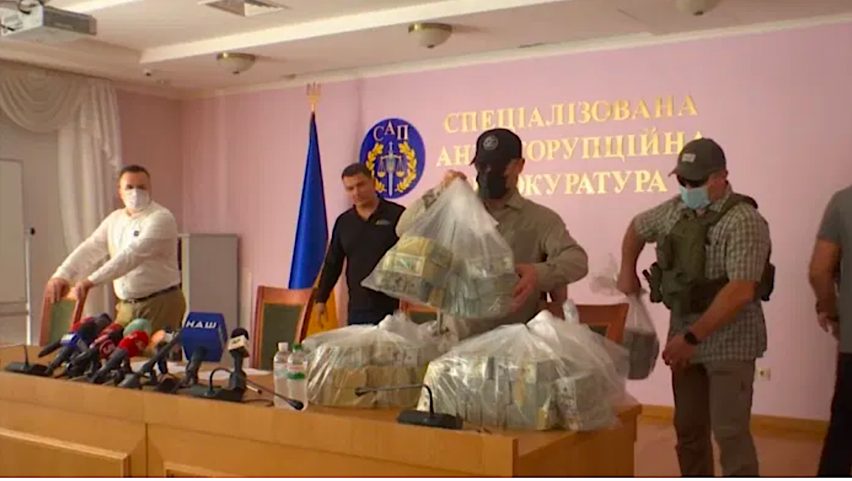
Ukrainian posecutors show a $ 6 million bribe to close a case against ex-official Mykola Zlochevsky into Mykola Zlochevsky and Burisma © Al Jazeera
One of the changes Cyprus made in its golden visa regime concerns people classed as “politically exposed persons” or PEPs. Under it, anyone who had held a high-profile position in a government or state-owned enterprise would not qualify for residency or a visa until at least five years after leaving office. Apparently, investigators see PEPs as “more likely” to be involved in illicit activities, which says a lot about officials and politicians. Some of those associated with the VTB bank, a Russian institution, were hit, therefore, when the EU and the United Stares imposed sanctions following Russia’s seizure of Crimea and continuing involvement in separatist conflicts in East Ukraine.
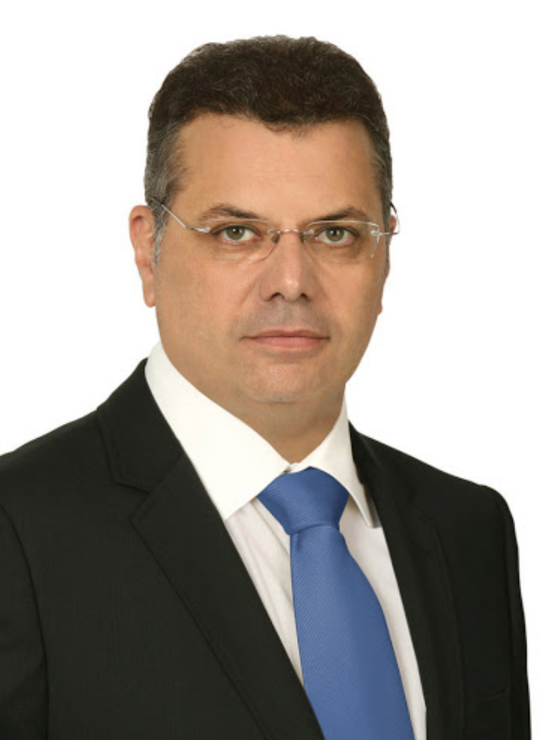
Cyprus Interior Minister Nicos Nouris© Paliament of Cyprus
The VTB had been used by Moscow to further its overseas activities and became known as the “Kremlin’s bank”. Three of its top executives, Al Jazeera reports, promptly invested in properties near Paphos in Cyprus. The NGO Global Witness has said that Cyprus became the preferred destination for outward foreign investment (it calls it ‘capital flight’) to the tune of $130-million (€109-million). Although there’s nothing to suggest the money is being used for criminal purposes, the website says there’s growing evidence that Cyprus has become a favoured place for Russians wanting to launder the proceeds of fraud, extortion and other crimes.
GETTING BETTER?
There are claims, however, that things are getting better. The Cyprus daily, The National Herald, believes that the government has got a grip on it. “Cyprus’ tainted Golden Visa program that sold residency permits and European Union passports to rich foreigners who weren’t always vetted for money laundering or criminal activity has been reformed, Interior Minister Nicos Nouris said,” according to its leading article. “Cyprus, along with Malta and Bulgaria, had been singled out by the European Union for lax controls that increased the changes (sic) for corruption and misuse of the program that also saw even those with Cypriot heritage having to wait for residency or dual citizenship if not rich.

Vladimir Putin with President of the Republic of Cyprus Nicos Anastasiades © Kremlin.ru
Nouris said the security of the scheme that Cypriot President Nicos Anastasiades defended until a Reuters report pointed out loopholes that led to the government revoking visas for 26 people, has been enhanced, SchengenVisaInfo.com reported.” The Cyprus Papers and the investigation by Al Jazeera also clearly played a big part in the change of heart: another persuasive factor may have arisen just four days earlier, when European Justice Commissioner Didier Reynders told Al Jazeera he is looking into the possibility of legal action against Cyprus over the country’s citizenship-through-investment scheme. Reynders said he was also calling for changes throughout Europe to such schemes which he would like to see phased out completely. Nouris, however, is not conceding gracefully. He has dismissed Al Jazeera’s allegations as “propaganda, not journalism” and accused the journalists of “falsifying the documents”, although without offering any proof that this was the case. He said investigations were continuing into the source of the documents, presumably with a view to prosecuting the whistle-blowers, which is clearly not what Reynders wants. Transparency International is urging the Commission to take action quickly.

Vera Jourova, European Commissioner for Justice, Consumers and Gender Equality © europa.eu
Now the issue has been taken up by another member of the European Commission, Vice-President Vera Jourova, who is responsible for ‘Values and Transparency’. She says that “Europe’s security is being put at risk by so-called ‘golden passport’ schemes that have allowed states to sell citizenship or residency to potentially “dangerous” individuals.” She described the schemes as “problematic” and “unfair”, which is pretty much what Europe’s intelligence agencies have said. Malta and Cyprus have been named on a blacklist of 21 nations operating passport schemes that are deemed to pose “a high risk of tax evasion.” The list was published on Tuesday by the Paris-based OECD (Organization for Economic Cooperation and Development), which wants tighter controls. Jourova accused the countries operating ‘golden visa’ schemes of “putting money before security”, just because they help the economy. “But this is unfair,” she said, “for the people who cannot afford to buy citizenship. And citizenship is something so, so big and so valuable that citizenship for sale seems for me rather problematic.” Furthermore, according to Al Jazeera, not to mention various NGOs and opposition politicians, the expensive properties in Larnaca and Paphos have been bought with money stolen from the ordinary and less-well-off citizens of Russia, Ukraine and China.
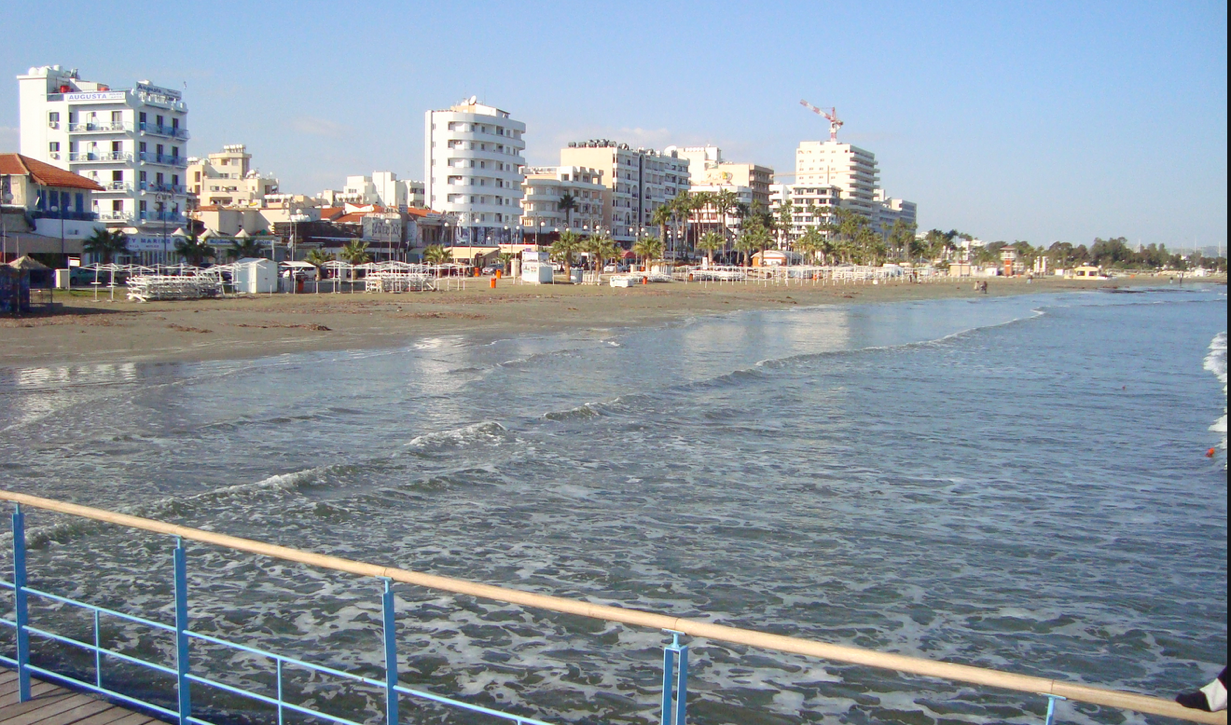
Larnaca © Wikicommons
The ex-EU United Kingdom doesn’t escape criticism, either, and it’s likely to get worse as it treads its new and virtually friendless path. Despite the passports by Cypriot, many of the anonymously registered companies are in London, while the Isle of Man has become a major centre for private jets, with over a thousand registered there. Did the UK quit the EU to become a pariah state, flouting international laws? Only time will tell, but certainly it has no shortage of venal people seeking ways to maximise and flout their wealth at the expense of others.
The motto of William of Wykeham (1320-1404), a one-time Bishop of Winchester and a top administrator under England’s King Edward III was ‘Manners makyth man’. Not, you will note, wealth or a willingness to acquire other people’s money by dishonest means. I’m sure William wasn’t poor by the standards of his day, but it seems he didn’t judge people by how much they’d got tucked away. The same sentiment comes into Shakespeare’s King Lear. In the play, Lear realises too late, and only when he’s out in the storm with his Fool and a supposed mad man (who isn’t really mad), what wretched lives are lived by the very poor. “Oh, I have ta’en too little care of this!” he says. “Take physic, pomp, expose thyself to feel what wretches feel, that thou mayst shake the superflux to them and show the heavens more just.” Justice has very little to do with it, I’m afraid; certainly no more than in Shakespeare’s time, or even the supposed time of King Lear, or Leir, which was around the 8th century BCE, according to the 12th century pseudo-historian, Geoffrey of Monmouth. As the 1921 song “Ain’t we got fun” goes, (slightly misquoting the poet Percy Bysshe Shelley) “there’s nothing surer, the rich get rich and the poor get poorer.” In another poem, ‘Song to the men of England’, Shelley puts it more plainly:
“The seed ye sow, another reaps;
The wealth ye find, another keeps;
The robes ye weave, another wears;
The arms ye forge, another bears.”
In other words, nothing really changes: the poor do the hard work and the rich gain the rewards for it, and it’s up to those of us who can to expose the kleptocrats and thieves, although they’re still laughing all the way to the (probably overseas) bank. The world may never be as fair and equitable as all but the rich would like, but it can be quite a bit better than it is. Ending golden visa schemes would help to bring that about.
Click below to read the 2020 September edition of Europe Diplomatic Magazine

